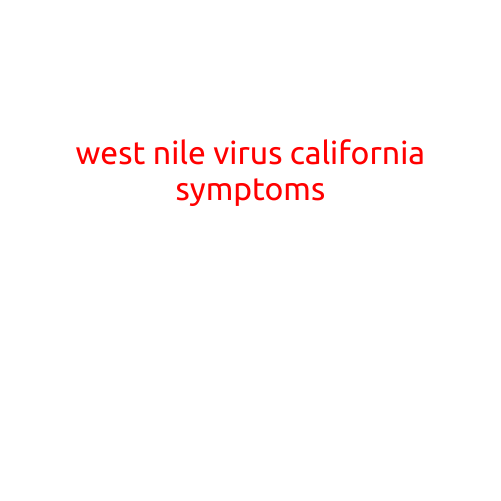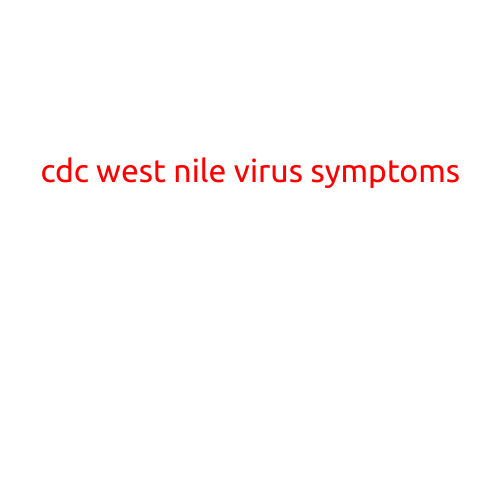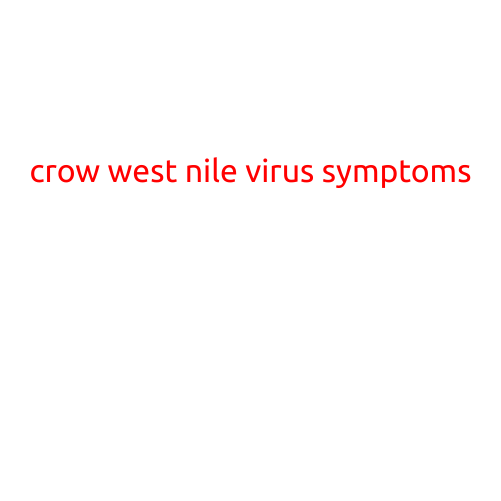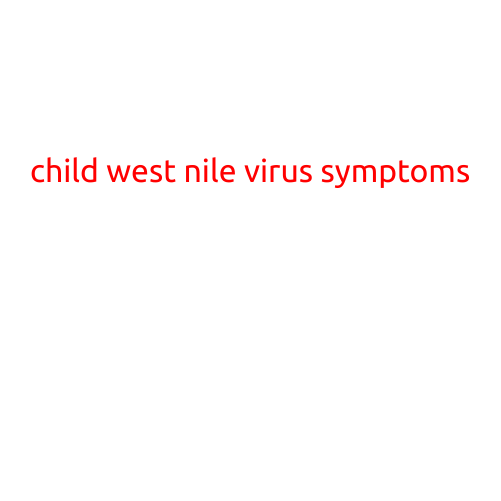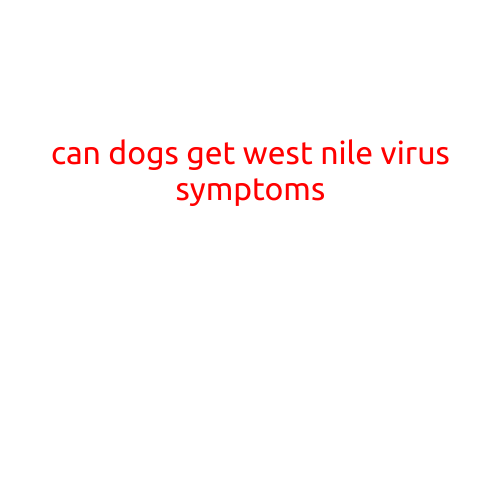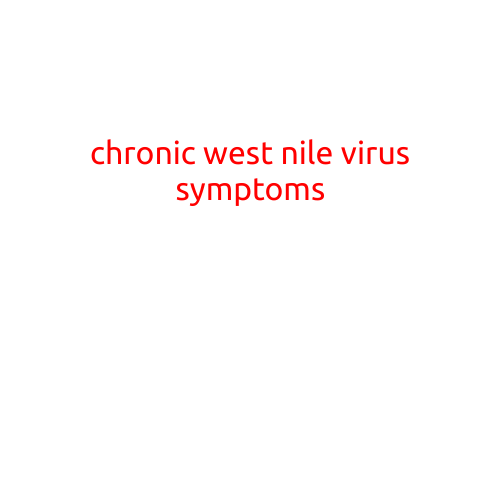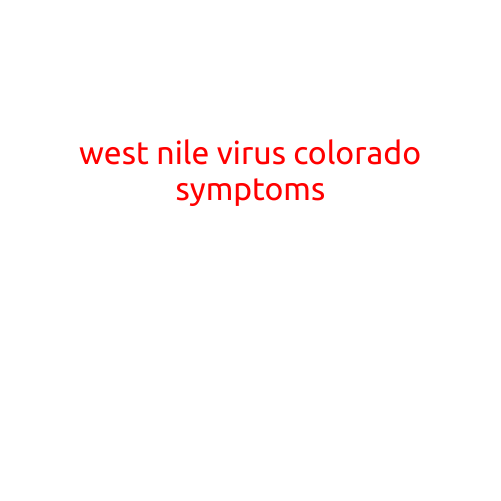
West Nile Virus in Colorado: Understanding the Symptoms
West Nile virus (WNV) is a deadly mosquito-borne disease that has been reported in Colorado and other parts of the United States. The virus is typically spread through the bite of an infected Culex mosquito, and can cause a range of symptoms from mild to severe. In this article, we will explore the symptoms of West Nile virus in Colorado and what you can do to protect yourself.
Symptoms of West Nile Virus
The majority of people who are infected with West Nile virus will not experience any symptoms at all. However, those who do become sick may exhibit the following symptoms:
- Fever
- Headache
- Muscle weakness
- Joint pain
- Swollen lymph nodes
- Rash
In severe cases, WNV can cause more serious symptoms, including:
- High fever
- Seizures
- Coma
- Paralysis
- Vision loss
- Muscle weakness
- Difficulty speaking or swallowing
Symptoms by Age Group
The symptoms of West Nile virus can vary depending on the age of the infected individual. According to the Colorado Department of Public Health and Environment, the following symptoms are commonly seen in different age groups:
- Children under 12 years old: Fever, headache, and body aches
- Adults under 50 years old: Fever, headache, and body aches, with some people experiencing severe symptoms
- Adults 50 and older: Fever, headache, confusion, and loss of coordination, with a higher risk of serious symptoms
When to Seek Medical Attention
If you are experiencing any of the symptoms of West Nile virus, it is important to seek medical attention immediately. This is especially true if you have a weakened immune system or are at a higher risk for severe disease.
Symptoms that require immediate medical attention include:
- High fever (over 103° F)
- Seizures
- Difficulty speaking or swallowing
- Vision loss
- Paralysis
Prevention and Protection
While there is no vaccine available to prevent West Nile virus, there are several steps you can take to reduce your risk of infection:
- Wear insect repellent: Use insect repellents that contain DEET, picaridin, or oil of lemon eucalyptus to repel mosquitoes.
- Wear protective clothing: Wear long-sleeved shirts, long pants, and socks when outdoors to reduce exposed skin.
- Eliminate standing water: Mosquitoes need standing water to breed, so eliminate any sources of standing water around your home and yard.
- Use air conditioning: Mosquitoes are less active in air-conditioned spaces, so if you have air conditioning, use it to reduce your risk of exposure.
Reporting Suspected Cases
If you suspect you or someone you know has been infected with West Nile virus, report it to your local county health department or contact the Colorado Department of Public Health and Environment at (303) 692-2000.
Conclusion
West Nile virus is a serious and potentially deadly disease that can have a significant impact on individuals and communities in Colorado. By understanding the symptoms of the disease and taking steps to prevent infection, you can reduce your risk of exposure and protect yourself and your loved ones. If you experience symptoms of WNV, seek medical attention immediately and report suspected cases to your local health authorities.
